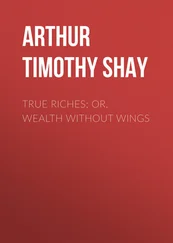“Well, Dan old boy, we’ll be seeing you,” Bob said at last.
“Right.”
“Don’t do anything I wouldn’t do.”
“Oh, for sure,” said, Daniel, in a tone intended to be wounding.
“And what the hell is that supposed to mean?”
“It was supposed to mean that that would give me lots of latitude. It was a joke. I laughed at all your jokes. You should laugh at some of mine.”
“I didn’t think it was a very funny joke.”
“Then we’re even.”
“Fuck off, Weinreb!”
“Have you heard the one about the nympho who married an alcoholic?”
Before Bob could answer that one he hung up. Which was the end, pretty definitely, of that friendship. Such as it had been.
One day, during the most ruthless part of August, and just after the twins had been packed off with a dozen other Brownies for their first taste of summer camp, Milly announced that she was being taken to Minneapolis for a full week of movies, shopping, and sybaritic sloth. “I’m tired,” she declared, “of swatting mosquitoes in a rented cabin while Abe goes off to stare at the ripples in the pond. It’s not my idea of a vacation. It never has been.” Daniel’s father, who had in fact been planning another fishing trip, gave in without even trying to negotiate a compromise. Unless, as seemed likely, the negotiations had already been handled off-stage and the official supper-time capitulation had been put on entirely for Daniel’s benefit. The upshot of his parents’ departure was that Daniel, who had often been a guest for lunch and dinner, was asked to stay at Worry for the whole week they were to be gone.
He’d thought that by now he couldn’t be fazed, that he’d confronted enough of the place’s pomps and splendors, had touched and tasted them often enough that a more steady view would have no power over him. But he was fazed, and it did have considerable power. He was given the room next to Boa’s, which was still provided, from the era of Miss Marspan’s visit, with a prodigious sound system, including a horseshoe organ he could play (using earphones) at any hour of the day or night. The height of the ceiling as he sprawled in his bed, the more formidable height of the windows that rose to within inches of the mouldings, the view from these windows across a small forest of unblighted elms (the largest concentration of elm trees left in Iowa), the waxed glow of rosewood and cherry furnishings, the hypnotic intricacies of the carpets (there were three), the silence, the coolness, the sense of wishes endlessly, effortlessly gratified: it was hard to keep any psychological distance from such things, hard not to covet them. You were always being stroked, carressed, seduced — by the scent and slither of the soap, by the sheets on the bed, by the colors of the paintings on the walls, the same enamel-like colors that appeared, fizzing in his head, when he squeezed his eyes closed during orgasm: pinks that deepened to a rose, deliquescent blues, mauves and lavenders, celadon greens and lemon yellows. Like courtesans pretending to be no more than matrons of a certain elegance, these paintings, in their carved and gilded frames, hung on demask walls quite as though they were, as they declared, mere innocent bowls of fruit and swirls of paint. In fact, they were all incitements to rape.
Everywhere you looked: sex. He could think of nothing else. He’d sit at the dinner table, talking about whatever (or, more likely, listening), and the taste of the sauce on his tongue became one with the taste of Boa an hour before when they’d made love, a taste that might be overwhelmed, all at once, by a spasm of total pleasure right there at the dinner table that would stiffen his spine and immobilize his mind. He would look at Boa (or, just as often, at Alethea) and his imagination would begin to rev until it had gone out of control, until there was nothing in his head but the image, immense and undifferentiated, of their copulation. Not even theirs, really, but a cosmic abstraction, a disembodied, blissful rhythm that even the flames of the candles obeyed.
It was the same when they would listen to music. He had read, in some book of advice lent him by Mrs. Boismortier, that it was a bad idea to listen to too many records. The way to discover what any piece of music was about was to perform it yourself, or lacking that, to hear it performed live. The habit of listening to records was a form of self-abuse. But, ah, there is something to be said for the habit. Lord God, such music as they listened to that week! Such pleasures as they shared! Such flurries of fingers, such cadences and cadenzas, such amazing transitions to such sighs and smiles and secret sympathies suddenly made plain as in the most brilliant and luminous of mirrors!
It dawned on him that this is what being in love was all about. This was why people made such a fuss over it. Why they said it made the world go round. It did! He stood with Boa on the roof of Worry’s tower and watched the sun rise above the green body of the earth and felt himself to be, with her, ineffably, part of a single process that began in that faraway furnace that burned atoms into energy. He could not have explained how this was so, nor could he hold on for more than a moment to his highest sense of that enveloping Love, the moment when he had felt needles of light piercing his and Boa’s separate flesh, knitting their bodies like two threads into the intricate skein of that summer’s profusions. It was only a single moment, and it went.
But every time they made love it was as though they were moving toward that moment again, slowly at first, then suddenly it would be there again in its immense, arisen majesty within them, and still the delirium swelled as they moved from height to effortless height, exalted, exulting, exiles from earth, set free from gravity and the laws of motion. It was heaven, and they had the keys. How could they have kept themselves from returning, even supposing they had wanted to?
Late on the last night of his sojourn at Worry, returning from Boa’s room to his own, Daniel was met in the hallway by Roberts, Mr. Whiting’s valet. In a confidential whisper Roberts said that Mr. Whiting would like to have a word with Daniel in his office. Would he come this way? It seemed useless to plead that he wasn’t properly dressed to visit Mr. Whiting, so off he went, in his bathrobe and slippers, to the drawing room in which he’d first taken tea with the family, then through a kind of lock connecting that room to the inner keep, a sealed corridor of whirling motors, winking lights, and eccentric clockwork contraptions. He wondered, walking through this fairy-trap, if it had ever actually served the purpose for which it had been built. Were there, lost in the perpetual rotary motion of these various whirligigs, or caught in the repeating decimal of some data-bank underfoot, snared souls forever unable to return to their flesh? To which question there could be no answer for anyone who entered, as he did now, corporeally.
Grandison Whiting’s office was not like other rooms at Worry. It did not astonish. It was furnished with only ordinary office furniture of the better sort: glass bookcases, two wooden desks, some leather chairs. Papers littered every surface. A swivel lamp, the only one burning, was aimed at the door by which he’d come in (Roberts had not followed him through the fairy-trap), but even with the light in his eyes he knew that the man who sat behind the desk could not be Grandison Whiting.
“Good evening, Daniel,” the man said, in what was unmistakably Grandison Whiting’s voice.
“You’ve shaved off your beard!”
Grandison Whiting smiled. His teeth, agleam in the subdued light, seemed the exposed roots of his skeleton. His entire face, without his beard, had the stark character of a memento mori.
Читать дальше












